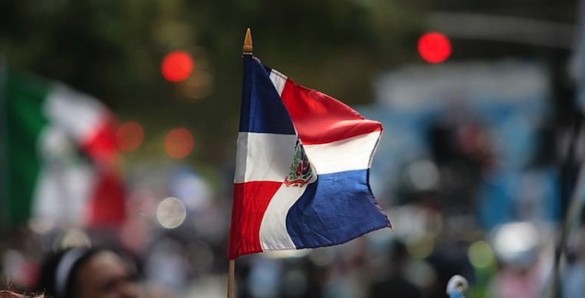
One of the most important factors influencing citizens to participate actively in political campaigns in the Americas is education, according to a survey conducted by Vanderbilt University.
“Working for a political party or campaign is uncommon,” the researchers wrote in a report about the survey, issued June 25 by the Latin American Public Opinion Project of Vanderbilt’s political science department. “Therefore we wondered what factors help account for the small percentage of active, involved citizens.”
The report focuses on explaining participation in campaigns in the Latin American and Caribbean regions of the Americas. Some of the factors considered in the examination of data from the 2010 AmericasBarometer survey by LAPOP include wealth, age, sex and educational level.
People with higher education are more likely to participate
The researchers found the higher a person’s level of education, the more likely they were to work for a campaign or party. The report also found that gender matters: women are less likely to participate.
“Those who live in rural areas, who are older, and those who are more educated are more likely to have worked for a campaign in the last national election,” the researchers wrote in the report, which is available for review at the LAPOP website.
In a ranking of countries in the Americas of who has the most politically active population, the Dominican Republic was first with 19.9 percent of the population followed closely by Suriname at 18.8 percent. The United States ranked fifth with 13.4 percent, while Peru (5.8 percent), Canada (4.8 percent) and Chile (3.1 percent) were at the low end.
“The countries with the highest participation are found in the Caribbean region,” the researchers wrote. “There is only modest variation across the remaining 24 countries, with percentages tapering off slowly.”
Trusting people less likely to participate
A result that surprised researchers was that those with greater interpersonal trust with fellow citizens were less likely to be active politically.
“One might reasonably assume that the more trust a person has in others, the more likely he or she will be to engage with other citizens and political leaders,” they wrote.
“One possibility is that engagement in campaign work decreases interpersonal trust by exposing an individual to the political discord inherent in democratic politics,” the researchers speculated. “Another possibility is that those with high interpersonal trust are content to let others do the work involved in a campaign, as they trust that others can get the job done well.”
Wealth is not as important as believed
Another perhaps surprising result was that an individual’s level of wealth has a statistically insignificant influence on political involvement in campaign work in the Latin American and Caribbean regions.
“This suggests that the intangible lessons and resources obtained through education are more important to involvement in campaign work than the material resources that wealth provides,” they wrote. “[rquote]Education may instill a sense of duty, which may be a cause or effect of community participation and activism.”[/rquote]
“In other words … people … need to feel obligated to participate, and education may be one avenue through which individuals acquire this sense of duty.”
The 2010 AmericasBarometer by the The Latin American Public Opinion Projectinterviewed 40,990 respondents in Latin America and the Caribbean.
LAPOP was founded by Mitchell Seligson, Centennial Professor of Political Science at Vanderbilt. LAPOP’s associate director, Elizabeth Zechmeister, oversaw this analysis, which was done by undergraduate students Erica Graff, Maranda Orrell and Alex Rigl.